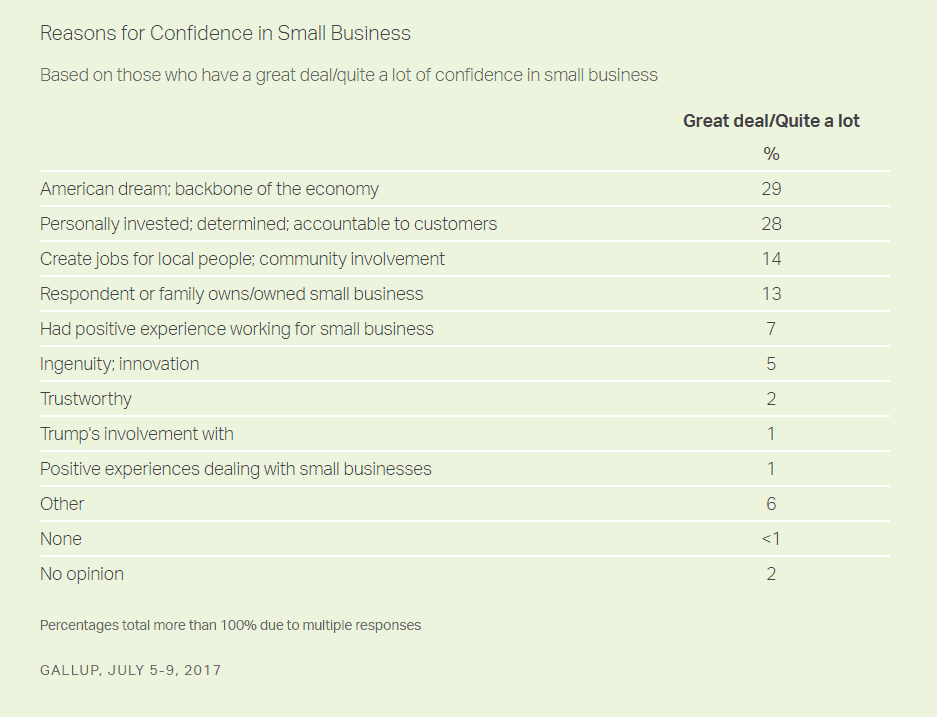When you wake up in the morning, you don’t tell yourself, “I want to visit a few sketchy websites and sign up for their newsletters.” Instead, you likely make a concerted effort to avoid information and sources that are unreliable. You seek out information that delivers value time and time again. When browsing search results, we don’t only look at the title and description, but also the domain to determine if they are trustworthy.
I urge small and aspiring business owners who want to become their industry’s leader to focus on loving their customers obsessively. It doesn’t mean that you would work for free; in fact, it could mean delivering a higher-touch, higher-value service or product for your audience. Some folks might scoff at that idea thinking they’ll go broke. Sure, if you sell to the price-sensitive consumer who doesn’t understand and respect your value. It all starts with a genuine appreciation for customers and respect for their experience. No, not everyone needs to opt into your email list. No, not everyone wants to read your holiday wishes. You don’t even have to have a sale if you don’t want to.
(There’s nothing wrong with an email opt-in, an email message for the holidays, or an amazing sale. But if you do it, settle for nothing but the best. If it’s not your best, it’s mediocre, and we’ve had enough of that.)
Deliver better products and services
If you can identify a market with a tangible, measurable problem and you can solve it remarkably, the price will never be an issue because your quality will be at the level that qualified prospects will find attractive. Position your business around the values and interests that matter to the customer, not what sounds good in a press release features of your products.
In many types of businesses I’ve examined such as a coaching business, a product manufacturer, or an online subscription… the number one problem that they all had was that they didn’t believe in the value of themselves enough and they priced themselves against a commoditized market. This anchoring drives customers to compare you to other rivals. But the good news is that you have a lower price, right?
People don’t want a lower price product. They want a better product that has better value and advocates for causes and interests they support. It’s not only marketing; you have to deliver a better product or service that help customers achieve goals that matter in their lives. Let’s say you have product company where you merely import inferior knock-offs from Aliexpress. Instead of deceiving customers, you should seek out a local manufacturer of your widgets — and make that a part of your story and focus on customer satisfaction and innovation.
Another way to love your customers more is to produce better content. Your purpose shouldn’t only be to create “better” or “good enough” content, but instead, aim to deliver the best content you can with the resources you have. If it’s an interview, a tutorial, a product demo, or a customer story, you should do your best to capture and publish the best possible iteration, so your customers enjoy and trust content from you.
Research conducted by New Voice Media reports that 58% of consumers will never use a company again after a poor experience — could your website and its content be a contributing cause of their frustration?
Trust is key. It’s not only about the top ranking in Google that matters. If we wouldn’t click on our own links, why would our customers? Trust is essential to growing your business.
To build trust, you have to have your brand, your content, your message, and every other interaction be on-point and focused on customer benefits and project a sense of security in a world of threats and chaos. Sometimes it means you go back to the drawing board and you try again. Other times, it means you cleave off three-quarters of your website so you can triple your focus on what you do best.
It pays to love your customers
Aside from the number of altruistic reasons to love customers by investing in a quality user experience, maintaining fair store policies, publishing useful online content, and delivering a superior product, it’s also good business.
Gallup has kept a steady pulse on American attitudes toward government policies and issues facing the public. They indicate that even though small business optimism is at its highest in ten years, behind government regulations, marketplace and economic conditions continue to trend as top concerns. One theory is that small business owners are finding that customer acquisition behaviors have changed. That is, old customer acquisition tactics from the last decade no longer generate customer demand for your business today.
It’s also worth looking at the other side of the relationship and reciprocate.

As a small business owner, you’re special. Consumers have a higher perception of your contributions to society and America at large as compared to larger corporations. Gallup tracked the top reasons why consumers view small businesses favorably. These motivations represent opportunities for you to connect and increase content consumption and loyalty throughout your business.
Could you increase your transactions by 5%, margin by 5%, and lower customer acquisition costs by 5%? Accomplishing these goals could be as simple as revamping your content strategy or implementing lifecycle marketing. Collectively, these small changes add up to a significant impact on the business’ revenue without much an increase in costs for a small business.


